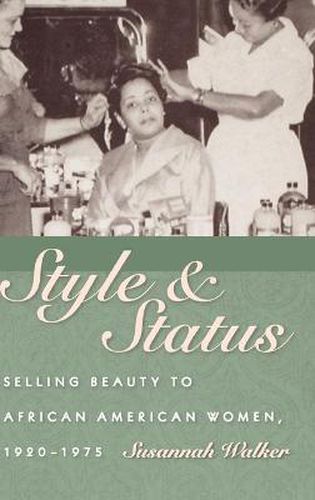Readings Newsletter
Become a Readings Member to make your shopping experience even easier.
Sign in or sign up for free!
You’re not far away from qualifying for FREE standard shipping within Australia
You’ve qualified for FREE standard shipping within Australia
The cart is loading…






In Style and Status, Susannah Walker examines twentieth-century commercial beauty culture in terms of race and gender. She demonstrates that while black women’s beauty culture often mirrored that of white women in important ways, it remained distinctive because it explicitly articulated racial politics in the United States. African American women confronted daily the tension between the idea that beautifying themselves according to modern standards enhanced their success and the idea that doing so meant capitulating to a white beauty ideal that excluded and denigrated them. That confrontation not only reflected race and gender politics, but it helped fuel the struggle for black equality during the 1960s and 1970s. Walker examines the role of African American consumer culture and draws connections between black women’s racial identity, African American notions of femininity, and social and political consciousness.
$9.00 standard shipping within Australia
FREE standard shipping within Australia for orders over $100.00
Express & International shipping calculated at checkout
In Style and Status, Susannah Walker examines twentieth-century commercial beauty culture in terms of race and gender. She demonstrates that while black women’s beauty culture often mirrored that of white women in important ways, it remained distinctive because it explicitly articulated racial politics in the United States. African American women confronted daily the tension between the idea that beautifying themselves according to modern standards enhanced their success and the idea that doing so meant capitulating to a white beauty ideal that excluded and denigrated them. That confrontation not only reflected race and gender politics, but it helped fuel the struggle for black equality during the 1960s and 1970s. Walker examines the role of African American consumer culture and draws connections between black women’s racial identity, African American notions of femininity, and social and political consciousness.